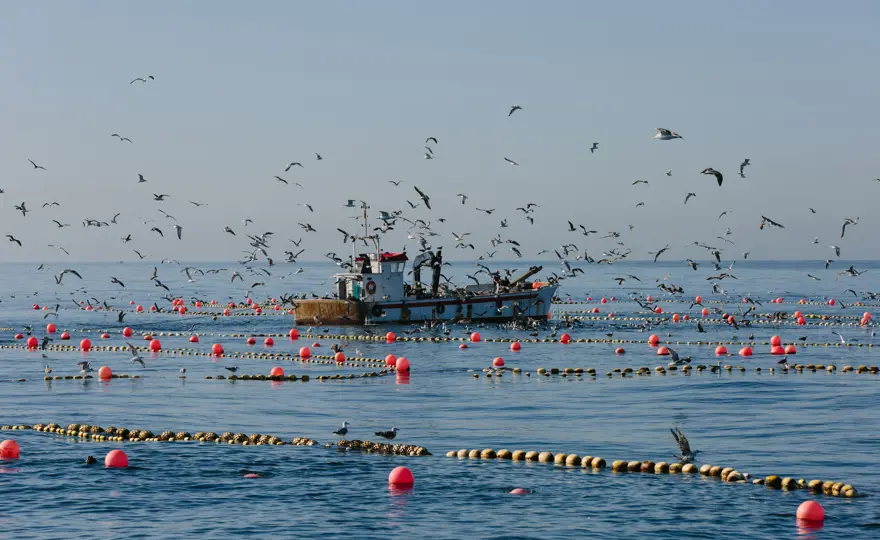ClientEarth Communications
27th November 2023


At ClientEarth, we know that the law is the most powerful tool we have to tackle climate change, and our environmental lawyers use it every day to fight for justice for people and planet.
If you’re thinking about gaining legal skills to play your part in the climate crisis, here’s our guide on how to become an environmental lawyer in England and Wales. We outline the different stages and offer some useful links to help you progress.
Beginning as a form of law tackling issues impacting on human health, environmental laws are now in place to protect the environment, human health, and manage how natural resources are used. With growing business and government environmental regulations in place, environmental law is a dynamic and progressive area to work in. The repertoire of environmental laws is ever expanding to cover a wide range of topics - ClientEarth has legal programmes in climate, clean energy, rule of law, forests, oceans and wildlife, pollution, among others.
Key areas of environmental law
The Climate Change Act 2008 legally binds the UK to achieving reduced greenhouse gas emissions. This involves creating and sticking to carbon budgets to reduce the amount of carbon emissions that the UK economy generates. Most years, the United Nations Conference on Climate Change, or COP, takes place. This brings together countries in the UN to monitor progress on reducing carbon emissions, and meeting the goals set out by the Paris Agreement.
Pollution can be split into three main areas: air pollution, land pollution and water pollution, all impacting negatively on the health of humans and wildlife. Air pollution can be caused by road traffic in urban areas, releasing particulates into the air that damage human health. Land pollution can come in the form of industrial waste from once industrial sites, leaving hazardous material. Water pollution can be inland or coastal - agriculture chemical run-off is one example. Laws in the UK to tackle pollution have dramatically improved since the industrial revolution, but despite this, pollution still poses serious threats to human and wildlife health.
A variety of wildlife and conservation laws revolve around protecting and maintaining the diverse flora, fauna and habitats that we and our planet need to survive. This spans from specific species protection, to the creation of protected areas, including National Parks, Areas Of Outstanding Natural Beauty (AONBs, although these have now been rebranded as National Landscapes) and protected sites including Sites of Special Scientific Interest (SSSIs). Threats to wildlife and biodiversity come in many forms, including wildlife crime, pollution and climate change.
The fact that these laws and legal requirements exist, means that we can use and enforce them in order to protect our environment.
In the UK, there are typically two routes to a career in law:
In England and Wales the legal profession is divided into two: solicitors and barristers. There are distinct courses depending on which path you wish to follow. The barrister profession is regulated by the Bar Standards Board. Solicitors are regulated by the Solicitors Regulation Authority. Learn more about the difference between the two.
Once you complete your studies, you will be ready to look for training. Environmental law opportunities vary from private, public and charity sector.
The private sector offers the bulk of opportunities for new lawyers. Most lawyers at ClientEarth trained in private practice, working in private firms for some years on a range of legal topics – including environmental law – before moving in to ClientEarth to work exclusively on environmental law. It’s important to consider what training you might be able to gain in private practice to support and underpin your future career.
In the UK, the Environment Agency has career opportunities for those looking for a career with the country’s environmental regulator. There is also the option of training and working with the government department responsible for the environment, the Department for Environment, Food and Rural Affairs (DEFRA).
Some legal experts at ClientEarth worked for environmental charities and NGOs using their legal skills for the benefit of the organisation but not necessarily as a practising lawyer. Their roles at ClientEarth are wide-ranging and include working as policy or legal experts in a broader team of lawyers who still hold a practising certificate.
There are a range of NGOs that offer legal opportunities: Greenpeace International offers a paid internship which will provide you with a chance to work on different environmental law issues, and WWF-UK has a legal department with regular vacancies.
If you’re looking to begin or enhance your career in environmental law, the UK Environmental Law Association (UKELA) is the membership organisation for environmental law professionals in the UK. UKELA provides the platforms and opportunities for environmental law professions to connect and collaborate on a range of environmental law topics, providing opportunities for you to write, speak or collaborate on the environmental law issue that you really care about.
If you want to increase your experience in environmental law: The Environmental Law Foundation (ELF) supports members of the public by providing free environmental law advice on a range of matters. It also runs a series of university law clinics where law students can – under supervision – work on real-life environmental law cases for communities.
ClientEarth regularly has new roles for environmental lawyers and legal staff with different levels of experience.